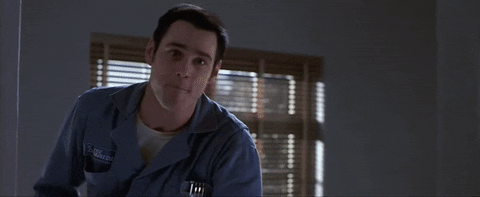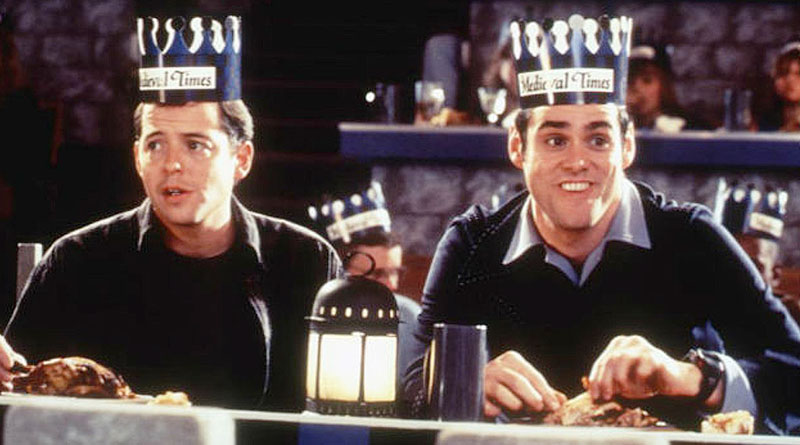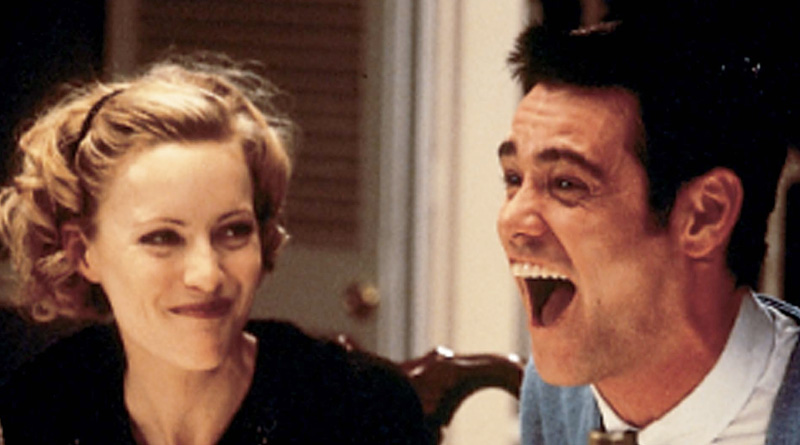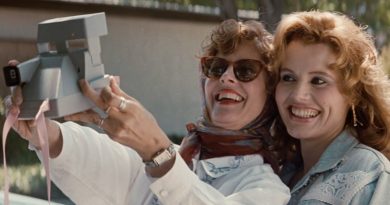The Cable Guy at 25: The Underrated Jim Carrey’s Dark Comedy
(Disclaimer: This feature article contains spoilers)
Remember the time when Jim Carrey used to be the most popular Hollywood comedian in the world? For the two consecutive years in 1994 and 1995, his first five films — Ace Ventura: Pet Detective, The Mask, Dumb and Dumber, Batman Forever and Ace Ventura: When Nature Calls — all turned into box office golds.
And for a while there, Carrey seems unstoppable as his fame kept growing and growing. Then The Cable Guy happened. The 1996 dark comedy famously made the headline, where the rubber-faced comedian became the first actor to receive a record-breaking US$20 million paycheck at the time. Besides, since his name alone was more than enough to put bums on seats, paying him that much certainly worth the investment.
While The Cable Guy did make a profit at a worldwide total of US$102 million against a US$47 million budget, it was still not enough. Reviews were largely mixed. Plus, of all his famous films released during the 90s era, The Cable Guy was viewed as a minor and forgettable entry.

I remember when I first watched The Cable Guy back in 1996, I wasn’t expecting Jim Carrey to end up in a dark comedy. Sure, he still retained his trademark rubber-faced antics and gleefully over-the-top comedic acting in the film. But it felt like Carrey was trying too hard to be different from what he usually offered at the time.
Fast-forward to the present and to coincide with the film’s 25th anniversary, I decided to give it another go by revisiting The Cable Guy, where I managed to stream it on Netflix. And it turns out I like it better the second time around. I have to admit that Carrey made a bold decision for such a radical change of pace during his prime.
But let’s talk about the story first, where Lou Holtz Jr.’s screenplay resonates the most when comes to the underlying themes of friendship and loneliness. In The Cable Guy, Carrey plays the title character who called himself Chip Douglas. He’s good at what he does and the first time we saw him, he helps Steven M. Kovacs (Matthew Broderick) getting his TV cable fixed. From there, they become friends and so that’s what Chip originally thought so.
The more Steven gets to know him, the weirder and awkward he felt about Chip’s eccentric behaviour. For instance, Chip gets too carried away in what should have been a friendly basketball match. Steven eventually grows more uncomfortable when Chip meddles too much in his personal life and even his relationship with his on-and-off girlfriend, Robin Harris (Leslie Mann).

Interestingly enough, this was the only time that Lou Holtz Jr. got his sole screenwriting credit. And believe it or not, he was a Los Angeles prosecutor when he got the idea of writing a story about a clingy cable guy who desperately needed a friend. According to EW’s 1996 Summer Movie Preview, his idea derived from his own experience back in “a few years ago where [he] was in [his] mother’s apartment building and saw a cable guy walking down the hall [so late at night]”. His screenplay became a hot commodity, where Columbia Pictures ended up winning the bid at US$1 million.
Then, there’s Judd Apatow who later made his name nine years later in 2005’s The 40-Year-Old Virgin. He was supposed to get officially credited for revising Holtz’s screenplay but failed to do so after according to EW, “[losing] an intense Writers Guild arbitration with Holtz for sole script credit”.
The Cable Guy also benefits from an overall good acting ensemble. Carrey’s darker turn as a desperate and lonely cable guy is both creepy and sympathetic. He even has a field day parodying certain moments from TV series (the scene in the medieval-themed restaurant a.k.a. Medieval Times, where he dresses as a knight and reenacted the fight scene between William Shatner’s Captain Kirk and Leonard Nimoy’s Spock from a 1967 Star Trek episode titled “Amok Time”) and movies (one of them involved Carrey mimics the famous “ch, ch, ch” sound effect from Friday the 13th comes to mind).
As good as Carrey did in this film, it’s hard to believe he wasn’t the first choice to play the title character. That original star in question turned out to be Chris Farley but forced to drop out due to scheduling conflicts.

Carrey also pairs well with Matthew Broderick, whose role as Steven M. Kovacs being forced to put up with Chip’s overly needy behaviour delivers a spot-on performance. The film also featured early performances from Jack Black, who plays Steven’s friend, Rick and Owen Wilson as Robin’s date, who ends up getting attacked by Chip in the men’s room.
The Cable Guy was only Ben Stiller’s (he also appeared in a background cameo playing twin brothers Sam and Stan Sweet) second feature-length directorial effort after his 1994’s Generation X-defining coming-of-age dramedy Reality Bites. Here, he does a good job balancing Carrey’s signature antics and the film’s bleaker themes, even though I still have a problem with the underwhelming finale. Given the dark tones of the film, it feels like a narrative misstep watching Chip miraculously survived at the end. It’s more like the ending is too manufactured and all neatly tied up for its own good. This, in turn, lessens the impact of the film. But that’s just me because, in Judd Apatow’s revised draft, his character would end up impaled on a cable dish.
Although Carrey followed up with a more mainstream-friendly (read: crowd-pleasing entertainment) Liar Liar in 1997, he didn’t choose to stick to the same comfort zone for his subsequent career. Case in point includes The Truman Show (1998), Man on the Moon (1999), The Majestic (2001) and Eternal Sunshine of the Spotless Mind (2004), just to name a few.




